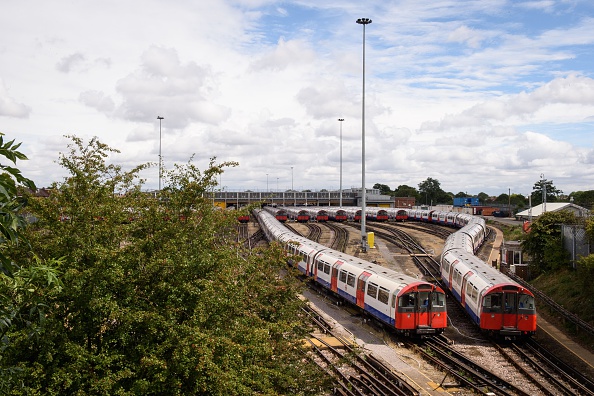Treasury rebuffed TfL bid for Piccadilly line funds in spending round

Transport for London (TfL) asked the government for funds for the Piccadilly line signalling upgrade in the recent spending round but was left empty-handed, City A.M. understands.
TfL is said to be disgruntled at the lack of funds it received from the Treasury in the recent one-year spending round announced by chancellor Sajid Javid earlier this month.
Read more: Mike Brown hits out at ‘bonkers’ TfL borrowing limits
The Piccadilly line signalling upgrade is one of TfL’s major projects that was shelved when the extent of the organisation’s financial troubles became clear at the end of last year. The cost of the upgrade is £2.45bn.
A source said TfL had pushed for the investment because it argued that the Piccadilly line was regarded as a “national asset” because of its links to Heathrow airport.
However, it is understood that TfL came away with £6m that will go towards Crossrail 2, the proposed rail link in south east England.
A TfL spokesperson said: “We are still in discussion with the government about the delivery of the Piccadilly line signalling upgrade.
“As part of the recent one-year government spending round, we made the case to the Treasury for the opportunity to discuss securing investment to progress the deep Tube upgrades – starting with the Piccadilly line signalling. While there was no explicit reference to this in the chancellor’s statement, we have had recent discussions with the secretary of state for transport about this.
“We will continue to work with government to make the case for long term investment in London, including this vital signalling renewal, as part of the more comprehensive multi-year spending review next year.”
A Treasury spokesperson declined to comment.
In a letter to Javid before the spending round, TfL boss Mike Brown said: “I hope we can discuss how we might work together to reach a position where we can confirm the contract for the signalling upgrade on the Piccadilly line.
“New signalling would unlock capacity needed on the line, allowing us to provide more frequent and reliable services to the UK’s busiest airport and through central London, boosting homes and jobs.
“We have already let a contract for 94 new trains – which has stimulated a new factory being built in Goole in Yorkshire. With further certainty on funding to complete the Tube upgrades, we could build up to two trains a month at this factory for the next three decades from 2023, securing 2,000 jobs.”
Last week Brown told City A.M that that he had received “no certainty beyond next year” from the Department for Transport (DfT) or the Treasury as to how the travel body would be funded, and that this was preventing him from signing crucial business contracts.
TfL is currently funded through a variety of sources, including a capital grant which is financed from a proportion of local business rates and which it receives through the Greater London Authority. However, the spending review announced by Javid only covered the years 2020/21.
TfL is currently struggling with a £500m deficit, a reduction in fare income, the removal of the government’s £700m operational grant and Sadiq Khan’s fares freeze.
Read more: TfL delays investment to ‘future years’ as debt climbs to £11bn
“I’m not asking for special treatment for London compared to other cities in the country or other regions in the country; I’m just asking for equal treatment,” Brown said at the time.
Over the past year it has been forced to press pause on a number of transport upgrades, including the Bakerloo line extension and station upgrades at Camden and Holborn, while the Northern line extension to Battersea has been delayed by a year.
Main image credit: Getty